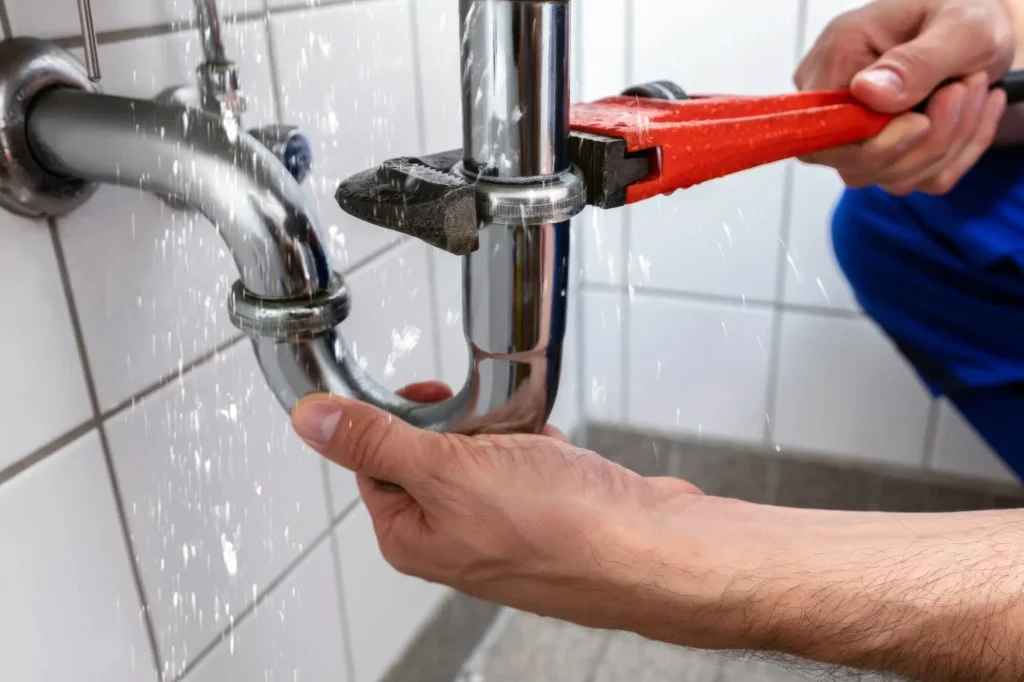Plumbing problems can cause big damage to your home. A small leak can turn into a costly disaster if not fixed early.
That’s why smart home maintenance is so important. Taking simple steps now can help you avoid major plumbing issues later.
In this post, you’ll learn the top home maintenance tips to keep your plumbing working well. These tips are easy to follow and will help protect your home from surprise problems.
Check for Leaks Regularly
Small leaks can turn into big problems fast. Always check under sinks, around toilets, and behind appliances. Catching leaks early helps with leak prevention and keeps your home safe.
Leaks waste water and raise your bills. Fixing a drip may seem small, but it saves you money over time. It also protects your home from mold and water damage.
Make it a habit to check your pipes every month. If you find moisture or rust, take action right away.
Inspect Your Water Heater
Your water heater needs attention to work well. Look for rust, leaks, or strange sounds. Flush it once a year to clear out sediment.
Old water heaters can leak or even burst, leading to serious damage and costly repairs. Regular checks are a smart part of household plumbing care.
If your water doesn’t heat well or the tank is over 10 years old, consider a replacement. It’s better to upgrade than deal with a flood.
Clean Drains Often
Clogged drains can lead to backups and flooding. Use drain screens to catch hair and food bits. Clean them out weekly to keep water flowing.
Avoid using harsh chemicals, as they can damage pipes. Instead, try boiling water, baking soda, and vinegar. These are safe and effective DIY plumbing tips.
If you frequently experience slow drains, it may be time to call a professional drain cleaning company. Expert cleaning can eliminate stubborn clogs that simple methods can’t fix. They have the right tools to fix stubborn clogs.
Check for Running Toilets
Running toilets waste water and increase your bill. Listen for water sounds when the toilet isn’t in use. If you hear it, check the flapper and float.
Replacing the flapper is easy and cheap. You can find kits at any hardware store. Fixing it quickly can save you hundreds of gallons of water.
Make sure the tank parts are working smoothly. If not, replace them or call a plumber. Routine checks like this can prevent plumbing disasters.
Know Where Your Main Shut-Off Valve Is
In a plumbing emergency, time matters. You need to know where your main shut-off valve is located. This helps you stop water fast and avoid water damage.
Make sure everyone in your house knows how to turn it off. Keep the area around it clear and easy to reach. You don’t want to be searching during a flood.
Test the valve every few months to make sure it works. If it’s hard to turn, get it replaced.
Install Drain Strainers
Drain strainers stop debris from going down your pipes. They are simple tools that prevent many clogs. Use them in sinks, tubs, and showers.
Hair, soap, and food scraps often cause blockages. A strainer catches debris before it enters the drain. This helps reduce the potential need for repairs later.
Clean the strainers often. Empty them into the trash after each use. It’s a small task that goes a long way in plumbing maintenance.
Check Water Pressure
Too much pressure can harm your plumbing. It can lead to leaks, burst pipes, and damaged appliances. Use a water pressure gauge to check your levels.
Ideal pressure is between 40 and 60 psi. If it’s too high, install a pressure regulator. This device protects your pipes and fixtures.
High pressure can also shorten the life of your water heater and washing machine. Keeping it in check is part of good home maintenance.
Inspect Exposed Pipes for Damage
Pipes in your basement or under sinks can crack or rust. Check them often for signs of wear. Catching issues early helps you avoid big problems later.
Look for stains, moisture, or bulges. These can mean a pipe is about to leak. If you find anything odd, call a plumber right away.
Cold weather can also cause frozen pipes. Wrap them in insulation to keep them safe. This simple step is great for routine plumbing checks.
Know What Not to Flush
Understanding what should not go down your toilet is vital for maintaining your plumbing. Flushing anything besides toilet paper can lead to blockages. Common offenders include wipes, feminine hygiene products, and even dental floss.
Having clear guidelines for everyone in your home will assist in avoiding plumbing disasters. Educate family members on proper toilet use. Good habits can prevent clogs and extend the life of your plumbing.
Consider placing signage near the toilet as a reminder. This can be especially helpful for guests. Keeping your toilets functional will save you money and frustration.
Stick to a Plumbing Inspection Checklist
A plumbing inspection checklist helps you stay organized. It reminds you what to check and when. This way, you won’t miss important tasks.
Include items like checking faucets, testing the water heater, and flushing drains. Do these checks once a month or once a season. Set reminders on your phone to stay on track.
A checklist is a smart way to manage household plumbing care. It keeps small problems from turning into big ones. Consistency is key to avoiding repairs.
Handle Small Repairs Quickly
Don’t wait to fix minor issues. A small drip or loose fitting can turn into a big mess. Take care of problems as soon as you spot them.
Use basic tools and guides for easy repairs. Many fixes only take a few minutes. These small steps are important parts of plumbing maintenance.
If you’re unsure, ask for help. It’s better to fix things right than guess. Acting fast helps avoid stress and damage later.
Stay Ahead of Plumbing Issues with Regular Home Maintenance
Adequate home maintenance helps stop plumbing problems before they start. Simple checks can save you time and money. Fixing small issues early keeps your home safe. Use a checklist to stay on track.
Don’t ignore signs like leaks or slow drains. Regular care keeps your plumbing working well. Make home maintenance a habit. It’s one of the best ways to protect your home from damage and stress.
Did you find this article helpful? Visit more of our blogs.

